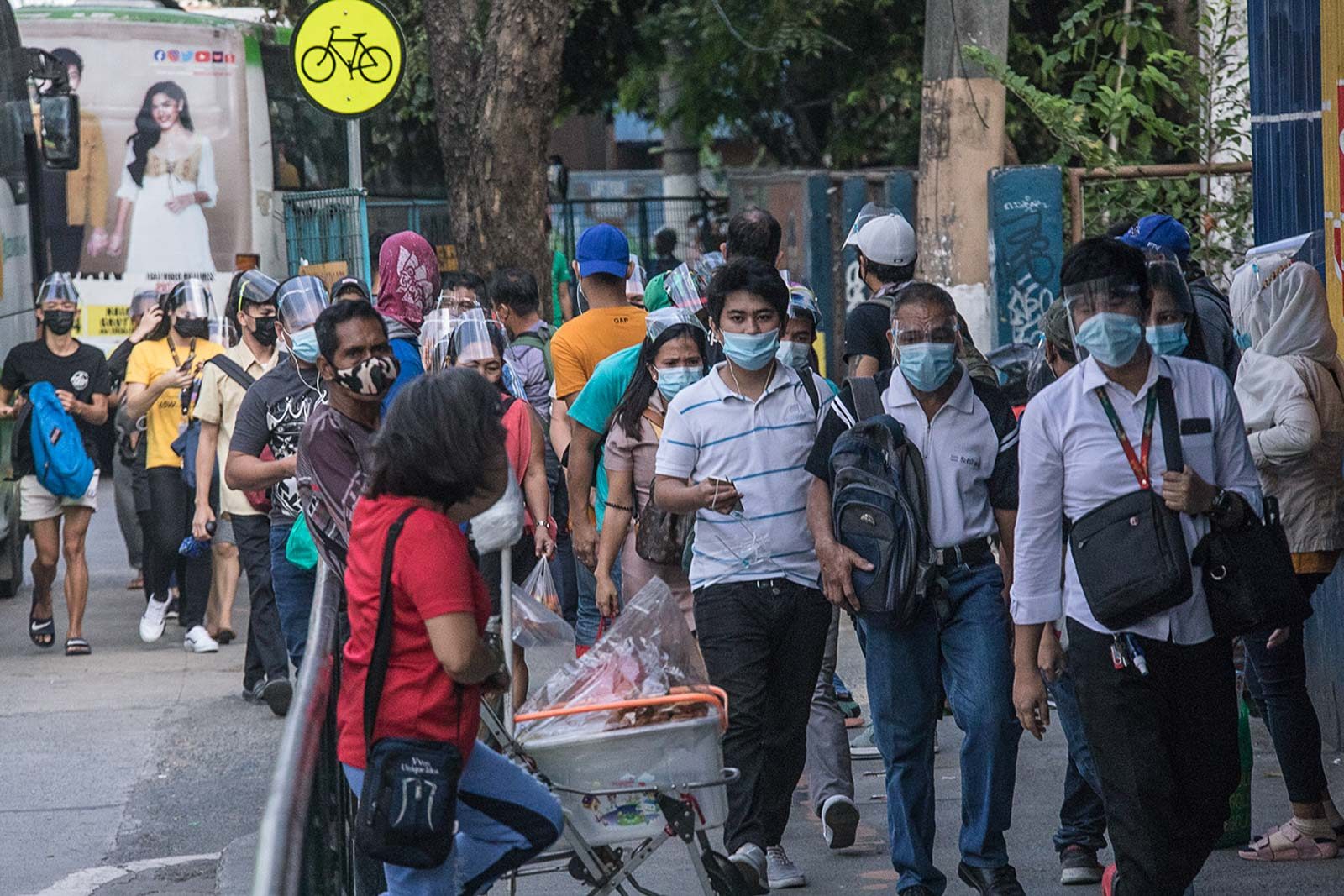SUMMARY
This is AI generated summarization, which may have errors. For context, always refer to the full article.

The Philippines now has 118,122 active COVID-19 cases, or patients who are currently sick, the most since the pandemic began.
On Saturday, March 27, the Department of Health (DOH) reported 9,595 additional cases, bringing the total confirmed caseload in the country to 712,442. This is the second time the country reported a single-day tally of over 9,000 cases.
For 10 straight days, the country has been posting over 5,000 new cases. Just this week alone, at least 56,386 new cases were recorded, excluding duplicates removed by DOH.
The number of new cases posted in March 2021 alone already surpassed the highest monthly infections tally set in August. The new COVID-19 cases in that period peaked at 127,465.
There are now at least 136,090 new cases recorded since March 1, 2021, with still 4 days to go in this month.
The DOH also reported 10 new deaths due to COVID-19, bringing the death toll to 13,159. Meanwhile, recoveries are up by 481, raising the total to 581,161.
The DOH reported the latest figures as the Inter-Agency Task Force on Emerging Infectious Diseases (IATF) recommended to President Rodrigo Duterte that “NCR Plus” – Metro Manila and the surrounding provinces of Bulacan, Cavite, Laguna, Rizal – be placed on enhanced community quarantine (ECQ), the strictest quarantine measure in the Philippines.
This comes after the surge in new daily cases in the country. IATF’s main recommendation is to place “NCR Plus” under ECQ for at least one week.
Octa Research: ‘We need another timeout’
The recommendation is similar to what the Octa Research Group – experts studying the pandemic situation in the country – had in mind.
At the Laging Handa briefing on Saturday morning, Octa Research fellow Dr Butch Ong said they were recommending placing “NCR Plus” under modified ECQ (MECQ) for the next two weeks to curb the rising infections of COVID-19.
“Our reproduction number is at 1.94 now. It decreased from 2.04 to 1.94 despite the localized LGU restrictions [recently imposed]. So almost the number of new cases only dropped by 0.01 in reproduction rate,” Ong said in a mix of English and Filipino.
The reproduction rate is the number of people that one COVID-19 positive case can infect. Experts have said that the goal is to keep it below 1 to contain virus transmission. An R above 1 means that the virus is spreading faster.
“So we expect that we will still stand by the 11,000 projection [of new daily cases by the end of month.] We hope to beat it, but 11,000 by the end of the month looks like a very, very close figure based on our current R number,” he said.
“If we are going to maintain the localized lockdown and if the change in the reproduction number is only 0.01, we might see an improvement in about 10 weeks. And that’s too long for our health care workers, our healthcare system. So maybe now we should consider stricter community restrictions, such as an MECQ for two weeks,” Ong added.
He cited the government’s decision in August to revert the restrictions in Metro Manila to MECQ from general community quarantine (GCQ) for two weeks after the Philippines’ health professionals warned the nation was losing its battle against the coronavirus pandemic.
“Based on last year’s performance, when we health care workers had a two-week timeout, it decreased the number of new cases significantly within the next 4 months. We were placed under MECQ in August and we saw a steady decrease until December. Maybe now, we might need a timeout again and we might need an MECQ again for two weeks,” Ong said.
Octa Research said in a statement that it believed this strategy would save both lives and the economy.
“We are doing this to save lives and livelihoods.The longer we delay the implementation of stricter mobility restrictions, the more people will get sick and die from this surge. OCTA is of the conviction that it is only when we are able to mitigate transmissions that we will be able to truly jumpstart the economy,” the group said. – Rappler.com
Add a comment
How does this make you feel?

There are no comments yet. Add your comment to start the conversation.